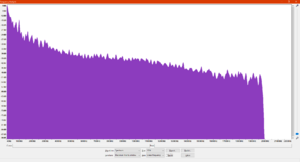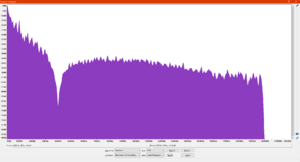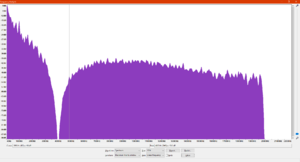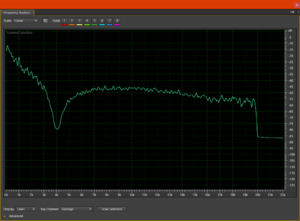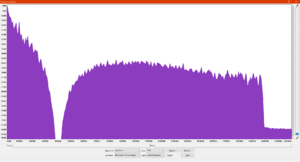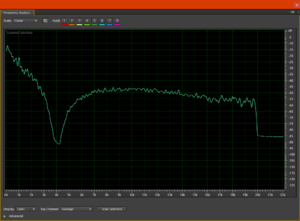it is apparent that they used Cool Edit software and notched music in wave format at >100db using a Butterworth filter at 150 order.
It is apparent how? I looked at the
PLOS article and the
PNAS article.
You can't easily achieve this type of notch with regular audio software:
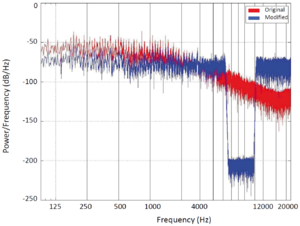
What you are looking at is likely the output from Matlab! Highly advanced and complex software used by scientists and engineers all over the world. My guess is... they used IIR filter functions
butter and
buttord to specify Butterworth filter algorithm and lowpass and highpass cutoff. In other words they did this programmatically, not by using your everyday audio editor software.
This realization makes me doubt the efficacy of the notch therapy being sold by the many apps and web services. They need to be able to replicate the filtering protocol exactly! I am not so sure they do. They could do it of course, but they would need to do a lot more investigation into this and implement it correctly in code. This is more about code than audio.
By the way, Adobe Audition software that I am using is the successor to Cool Edit. I am not sure it even has a Butterworth filter of any sort. Will have to do some checking.
The closest you can get is to use the Butterworth filter in Audacity. You will find it after you add it. It looks like this:
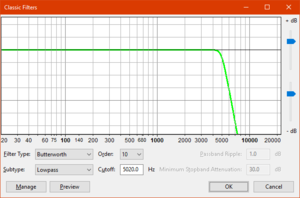
You can see I have put in 5020 Hz which is approximately the result of 7100 Hz divided by square root of 2. This will give you the lower cutoff. But you can't do a lowpass and highpass at the same time with this. So it's immediately useless! It may be possible to approach it pro grammatically without the GUI part, if there is support for it. I will have to do some checking.
Another pitfall of this filter is that it only allows for 10th order calculations. I finally get the order part! It's math! It's that boring school stuff again, such as equations, polynomials, etc.
https://en.wikipedia.org/wiki/Total_order
https://en.wikipedia.org/wiki/Higher-order_function
Yada, yada, yada... there are some inherent problems with higher order functions that can cause round off errors. I suspect this is why the filter designers left it at 10 as the highest option.
Notch therapy made at home... easier said than done. Properly...
Update:
OK, so I checked and turns out Audition has a whole new set of filters called scientific filters since Adobe CC release (not sure which version).
Butterworth
Provides a flat pass band with minimal phase shift, ringing, and overshoot.
https://helpx.adobe.com/audition/using/filter-equalizer-effects.html
As for Audacity, there is a plugin available for it that provides proper band stop filtering.
http://wiki.audacityteam.org/wiki/Nyquist_Effect_Plug-ins#Band_Stop_Filter
I don't think it uses Butterworth algorithm, and probably not a function of 150th order. But it's as close as you can get, using free software.

 Member
Member
 Manager
Manager
